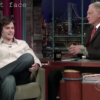The following post is from my weekly newsletter Moore to the Point. You can subscribe for free to have it delivered to your inbox every Monday.
—
This past week, a friend told me that a pastor we know couldn’t get through his pastoral prayer last week. He was interrupted, it seems, by a woman screaming at him from the pews for something he said. That should not, on its face, surprise us that much. The gospel, after all, is supposed to be a “scandal” to the world—at odds with the wisdom and power prized by this fallen age. So what did the pastor say that elicited this kind of reaction? Was it the exclusivity of Christ for access to God? The reality of hell and a Day of Judgment? That a virgin conceived, and that a dead man was resurrected? No. What brought such fury was his prayer that God would give wisdom and judgment to Joe Biden as he becomes the new president of the country.
This woman—a visitor, not a member of this pastor’s church—screamed, “Biden was not elected!” I was told this continued through the time of prayer, until she was ushered from the sanctuary while denouncing the pastor as a liberal and the church with slurs against our disabled brothers and sisters that I will not repeat here.
In case you were wondering, this pastor is not, in fact, a “liberal.” He is not the sort of pastor who endorses or half-endorses candidates for political office (may his tribe increase). I have no idea how the members of the church voted, though if one assumed the same trends of geography and demography that we see in exit polls, it is probably safe to assume that at least 70 percent voted the same way as the outraged woman.
The pastor was simply doing what the Bible commanded him to do: to pray for “kings and all those who are in authority” (1 Tim. 2:2). And, by now, there is no question that on January 20, 2021, Joe Biden will be sworn in as the 46th president of the United States. Is it possible that a vast conspiracy—that includes both Republican and Democratic election officials, as well as both Trump and Biden poll-watchers—could rig an election in multiple states at once, in a way that is imperceptible to everyone except for people who are posting memes on Facebook? I suppose. But this would mean that the entire constitutional order of the United States would be a fraud. To make that claim would require evidence that such has happened.
The problem right now is not that the election is “disputed,” with some people claiming certain facts and others claiming others. The election is only “disputed” in the sense that some say it is rigged. That’s why these claims are made on cable news networks, but not really in court, where there are higher consequences for making claims of conspiracy and fraud.
Beyond that, most people know that the election is over. They know that Joe Biden was elected president, that Republicans kept their majority in the Senate (pending how the Georgia runoff races go) and increased their numbers in the House of Representatives. To recognize that these things are true is to neither affirm nor to reject any of them. Those realities are accepted by most people who voted for Joe Biden and by most people who voted for Donald Trump. That’s true in the outside world, and that’s true within the church.
Now, what’s interesting here is not that politics has replaced the spiritual realities—even the most controversial of our claims—as the driver of the passions in our age, which I have written about here in other weeks. The point is that the burden this good pastor faced last week is one that goes far beyond, and will long outlast, the transition period after the election.
Increasingly, in this sort of American culture, it is not just that we are divided about what we value about the way things should be, but what we are allowed to say about the way things actually are. Now, notice, what I wrote here is not what we see about the way things are, but what we are allowed to say. In many ways, we live in a time in which to identify the truth—not about big cosmic capital “T” Truth but just about mundane, temporal “Here’s what happened” truths.
This is because we live in a time in which “truth” is seen as a means to tribal belonging, rather than as a reality that exists outside of us. And that’s true even among, sometimes even especially among those who spent the last twenty years arguing about the dangers of postmodern relativistic ideas of “truth” and the “rejection of metanarratives.”
Now, “objectivity” of truth has often been oversimplified. On many important things, we see, the Apostle Paul writes, “through a glass darkly” (1 Cor. 13:12). Our passions and experiences and intuitions often warp the way we see things, especially the most important things, which is why we need grace. People are going to have—from now till the apocalypse—arguments about what is true and what is false, what is real and what is fake.
Our problem now, though, is that, increasingly, we are called not just to argue about what is true, but to say things that we know to be false, just to prove that we are part of the tribe to which we belong. As the author Marilynne Robinson put it, “A society is moving toward dangerous ground when loyalty to the truth is seen as disloyalty to some supposedly higher interest.”
In most cases, this is not even because most people don’t want mundane facts mentioned. Again, the screaming woman in the pew was in a, no doubt, distinct minority in thinking the pastor even praying for someone almost everyone knows has been elected president made him “a liberal.” But that’s just the point.
I dealt not long ago with a small organization troubled by a community member who was a moon-landing denier. Years ago, a friend of mine had shown me a tract—covered in dust—in a rack in his church about “Why Man Will Never Walk on the Moon” (copyright 1967). But I didn’t know that such people still existed. They do. In this organization, this view was not shared by almost anyone. 99 out of a hundred people believed that Neil Armstrong walked on the moon. But the people who believed this saw it as what it in fact is—just a mundane fact. The moon-landing denier, though, organized his whole life around it. That’s enough to cause that organization just to avoid any comment on metaphors of a “moonshot” or maybe even about how people “all over the globe” need the gospel. That’s not because this person has convinced them but rather has exhausted them.
This pull is more important than our little upheavals over politics and culture—which are always raging but fast moving from one thing to the other. The pull can tell us something about a temptation common to us all.
I noticed this past week an article by philosopher Jennifer Frey about why she was drawn to her discipline, and about how hard it is to have integrity in her field. She said, “One thing that is a constant temptation … is to let your ambitions get to be more important than the truth. And tying your pursuit of the truth to your ambitions and your political ends, so that what you are willing to think about and write about is determined by your ambitions within the academy.”
“That’s something that I’ve had to fight my entire life,” she confessed. “If I wanted to have a fancy job I wouldn’t be writing about the things I care about. So you have to ask yourself ‘Why am I even doing this?’”
Frey said this is about more than just academic freedom or the intellectual life, but pointed to the last year of the COVID-19 pandemic, in which “what a person thought about the necessity of masks or the wisdom of lockdowns was often a function of their partisan affiliation.”
“I guess one of my most basic commitments,” she says, “is that, you know, the human is always trying to escape reality. I mean, me too, right? And really the goal of the moral life is to stay in contact with it as best as you can, and to be faithful to it. This is what Plato thought, this is what Aristotle thought, this is what Thomas thought, this is what Iris Murdoch thought.”
The end result, though, of truth as a vehicle for belonging or as a means to some end is not that we end up with more solidarity and belonging, but with less. We end up in cynicism and nihilism, and with tribes in which a person has to prove how loyal one is by being willing to say that he wants to belong more than he wants to say what is obviously true, not just about the big matters, but about the small, ordinary matters that will be gone like a vapor in time.
The Holy Spirit breathing out, “In those days a decree went out from Caesar Augustus that all the world should be registered,” in the days when “Quirinius was governor of Syria” is neither an affirmation nor a rejection of those office-holders. Nor do these words mean that these office-holders are the most important things about what was going on in Bethlehem at the time (far from it). Those words tell us that these things were true.
Donald Trump has been president of the United States for the past four years, elected by the American people. Joe Biden will be president, come January 20. These things are important, in their context, but they are not ultimate. That’s why we can say that things are the way they are without receiving them as ultimate victory nor as ultimate threat.
Saying it is raining outside does not mean that we like it, nor that we dislike it. We might disagree about whether our greatest problem is threat of drought or threat of flood. But to say the sun is shining while wiping the raindrops from our eyes, just to prove we are loyal to the Thunderstorm Society or to the Sunshine Marching Club, that’s no way to plan for one’s day, and it is certainly no way to be credible when one really does see a storm on the way.
Why I’m Glad People Have Interrupted My Preaching
Speaking of the pastor above, whose prayer was interrupted, I couldn’t help but think about how many times that has happened to me—and about how, looking back on it, I am glad for every time.
In one of the first churches I ever served—and probably the best ministry experience of my life—an elderly woman attended who had some form of dementia that prompted her to yell out answers to any rhetorical question. Most of the time these exclamations were innocent enough—“Well, I’ll be a monkey’s uncle!” to some point I was making, for instance. But, as her dementia progressed, she became more and more shockingly explicit, sometimes even profane, in what she would say. Every time, I would cringe internally—and apparently would blush. And, though I wouldn’t say this out loud, I started to resent her. What would people who were visiting think if they heard someone screaming out curses in the sanctuary?
After one such service, a group of older women in our church met me at the side door. “We get the feeling, Bro. Russ, that you’re kind of embarrassed by Miss (I’ll change her name here) Susie. Is that right?”
I thought I had a sympathetic ear, and I said, “Yes! Isn’t this challenging?” They looked at one another and said, “We love you, Brother Russ, but you need to repent of that. Miss Susie is our sister, and she can’t help it. One day any one of us, including you, might be in that situation. Let’s love her and help carry her burdens for her. Besides, ‘Well, I’ll be a monkey’s uncle” or ‘&*%$# yes!’ is just her way of saying ‘Amen.’”
When I protested that I didn’t mind being interrupted, but that I was afraid of what guests would think about our church, or about the gospel, these women said, “Well, what they will think is that we aren’t embarrassed by people who need us. And maybe that’s what they need to hear.”
They were right.
In the years that followed, I would be interrupted many other times. In one church I served, a young man with a developmental and mental illness would sit on the front row. I learned that he would identify himself so strongly with whatever narrative that I was communicating that he would smile broadly if I talked about the love of Jesus, and he would become angry and exercised if I talked about any biblical account that had any sort of fighting or violence even implied in it. In those cases, he would tackle someone near him and even, on one occasion, start throwing hymnals at me. Hymnals sound sweet and lovely, but they hurt when thrown at full force from six feet away.
I will admit that I became reluctant to start a new series in 1 and 2 Samuel or Judges, much less Revelation, but I was, again, awed by a congregation that never once displayed any sort of awkwardness about this young man. When needed, a couple of them would come stand with him, and sometimes restrain him from fighting or throwing, but never made a scene about it. No one ever suggested he shouldn’t be on the front row, much less that he shouldn’t be there. And I came to wish that all of us could be just as embedded in the biblical story as he was.
In that same church, a woman went into a panic attack one time when I was preaching on, I think, Noah’s flood, or maybe it was Jonah in the sea creature. She was extremely fearful of drowning, it turns out, and she stood up and yelled, “Dr. Moore, I can’t breathe!” Nobody was irritated. People took her into the hall—including some nurses in the congregation—and helped her through that panic attack. She was alright, and I was reminded that I was not speaking abstractions to abstractions, but speaking an old, old story to real, live people—all of us with hurts and fears and needs.
The church has many problems, of course. It always does. But, sometimes, if you pay attention, you can see in those small, ordinary patterns of life together something of the glory of the Jesus who loves us and dwells among us. Looking back, I can see that I found such moments less in the sermons in which my words flowed just the way I wanted, and more in the sermons I couldn’t really finish at all.
—
Thank you for reading. If you’d like to become a free subscriber to Moore to the Point, you can do so here.








